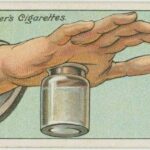Our bodies send us signals when they’re in need of specific nutrients. Recognizing these signs early can help us address potential deficiencies with targeted dietary adjustments. Here’s a breakdown of common vitamin deficiencies, their signs, and how to combat them with nutrition.
1. Vitamin A Deficiency
- Signs: Frequent acne, diminished appetite, deteriorating vision, frequent colds, and the formation of calluses.
- Causes: A diet low in fat. Vitamin A absorption requires fats, both plant-based and animal-derived.
- Solutions: Include yellow-orange vegetables and fruits, fatty fish like mackerel or herring, butter, and milk in your diet.
- Top Sources: Carrots, parsley, spinach.
- Daily Requirement: 1000 mcg.
2. B Vitamins Deficiency
- Signs: Insomnia, dull hair, bad breath, frequent headaches, dandruff, mouth corners cracking, depression, and constipation.
- Causes: Fiber shortage leading to disrupted gut peristalsis, affecting B vitamins absorption.
- Solutions: Eat more grains, whole grain bread, vegetables, nuts. B12 is found in beef, pork, milk; B3 in poultry, seafood, legumes, wheat germ.
- Top Sources: Brewer’s yeast, sprouted wheat grains, bran, liver.
- Daily Requirements: B1 – 1.5 mg; B2 – 1.3 mg; B5 – 4–7 mg; B6 – 1.6 mg; B12 – 2 mg.
3. Vitamin C Deficiency
- Signs: Quick to fatigue, slow healing scratches, unexplained weight gain, smoking habit, frequent bruising.
- Causes: Harmful habits and lack of sleep. Smokers and alcohol consumers need more vitamin C.
- Solutions: Citrus fruits are not the only solution; try kiwi, broccoli, spinach, or rosehip syrup/infusion.
- Top Sources: Strawberries, black currant, sorrel.
- Daily Requirement: 60 mg.
4. Vitamin D Deficiency
- Signs: Increased irritability, dental issues, occasional joint pain.
- Causes: Lack of sunlight, as vitamin D is naturally synthesized under sun exposure.
- Solutions: Spend more time outdoors, consume egg yolks, liver, and seafood. Supplementing vitamin D can help maintain adequate levels but be wary of overdosing.
- Top Source: Black caviar.
- Daily Requirement: 2.5 mcg.
5. Vitamin K Deficiency
- Signs: Prolonged bleeding from cuts, diabetes symptoms.
- Causes: GI tract issues, diseases affecting bile formation and excretion, consumption of carbonated drinks, alcohol, some antibiotics, sedatives, and tranquilizers.
- Solutions: Avoid soda, add spinach, watercress, and Brussels sprouts to your diet. Olive oil, bananas, avocados, kiwis, bran, and grains also contain vitamin K.
- Top Sources: Cabbage and leaf lettuce.
- Daily Requirement: 60–140 mcg.
6. Vitamin U Deficiency
- Signs: Allergic reactions to usual foods, frequent stomach pain, post-meal heartburn.
- Causes: Lack of plant foods. Vitamin U, a vitamin-like substance, aids in preventing stomach and duodenal ulcers, has analgesic and healing effects, and helps reduce symptoms of pollen allergies, asthma, and food allergies.
- Solutions: Consume sweet peppers, onions, bananas, fresh tomatoes, parsley, celery, turnips, and cabbage.
- Top Sources: Asparagus, beets, and celery.
- Daily Requirement: 100–300 mg.
Recognizing these signs and adjusting your diet accordingly can significantly improve your overall health and well-being. Incorporating a wide variety of these nutrient-rich foods into your diet can help prevent deficiencies and maintain optimal health.


